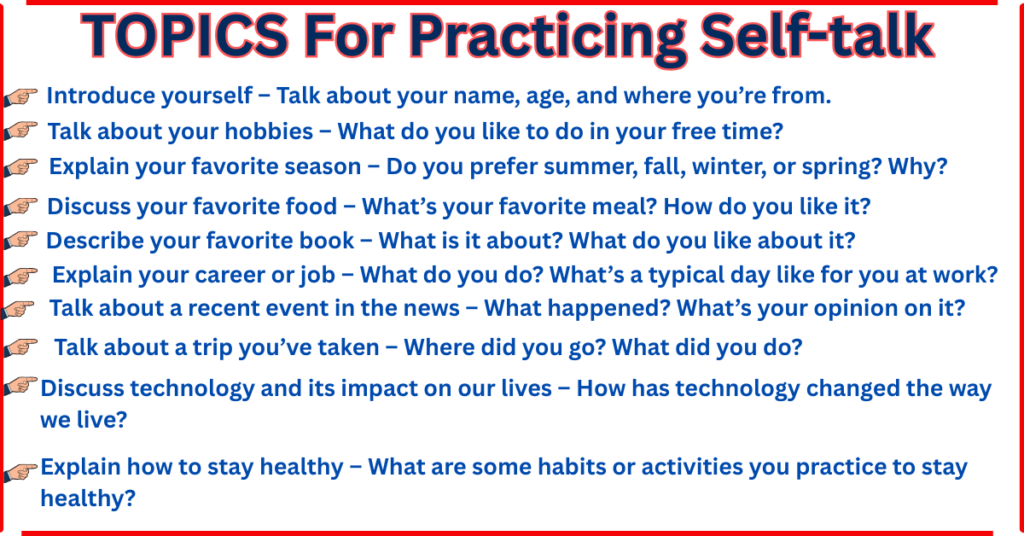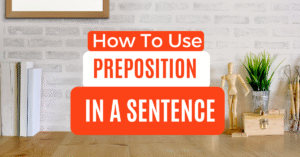Learn English Fast: Simple Step-by-Step Guide for Beginners

The importance of English as a crucial skill is beyond question. With this skill, one opens doors to various opportunities from quality education to a promising career. If you are a beginner and stating from the very beginning, this blog post is tailored just to help you overcome the fear of English. It serves as a step-by-step guide to help you develop confidence in speaking, writing, and understanding English and make your learning journey smooth and enjoyable.
In this guide I’ll be discussing 10 steps with practical examples to make learning easier.
Step 1: Start with Basic English Lessons
Why is it important?
It is wise to start with basic English lessons that cover basic grammar, sentence structures and vocabulary before moving onto the advanced topics. Once the basics get clear, you can use English with more confidence and ease.
What should be learnt first?
Alphabet and Pronunciation:
Ensure correct pronunciation of each letter (A for Apple, B for Ball, etc.).
Example:
Letter: A
Pronunciation: /eɪ/
Word Example: Apple (/ˈæp.əl/)
Basic Sentence Structure:
Subject + Verb + Object (e.g., “I play cricket.”)

Common Greetings & Phrases:
“Good morning”
“How are you?”
Step 2: Build Your English Vocabulary
Why is vocabulary important?
Rich vocabulary helps in expressing ideas in a clear manner. Also, with the right vocabulary we can avoid being misunderstood. It is essential to use the new words, again and again, to retain them.
In the beginning, use only those words which can be used in many situations. As you gain more confidence you can add more complex vocabulary to your lexicon. Set a small daily target so that you can manage it, irrespective of your busy schedule.
How to build vocabulary?
Learn 5 new words daily
(e.g., Challenge, Mysterious, Happiness)
Use flashcards or apps
Read newspapers and books to learn new words in context.
Example:
Basic Sentence: “I am happy.”
Better Sentence: “I am feeling delighted today!”
Step 3: Learn English Grammar Basics
Why is grammar necessary?
Grammar is the foundation of any language. By learning grammar, one can convey thoughts in a structure and precise way. Try getting the basic concepts clear so that you can reduce your grammatical mistakes, right from the very beginning.
Key grammar topics for beginners:
Tenses: Present, Past, Future (e.g., “I go to school.” → “I went to school.”). Many people make mistakes in tenses. Attempt different exercise to strengthen your knowledge.
Prepositions: in, on, at, under (e.g., “The book is on the table.”) Prepositions can be very confusing for beginners as they change in every situation. Try learning the general ones first, to make it easy for you to construct sentences.
Articles: a, an, the (e.g., “She is an intelligent girl.”)Use articles mindfully as one small mistake in articles can change the meaning of the sentence completely.
Common Mistakes & Corrections:
❌ “She go to market.”
✅ “She goes to the market.”
❌ “I didn’t went there.”
✅ “I didn’t go there.”
Step 4: Practice English Speaking Daily
Why is speaking practice essential?
Speaking practice is crucial to gain mastery over expressing your ideas clearly and easily. Also, it helps in fluency and confidence-building. Set aside at least 15 minutes daily, for speaking practice.
How to practice?
Talk to yourself in English:
This is one of the most efficient ways to stay in regular practice. The biggest advantage in this is that you can do it anytime you feel like. In my case, I used to do this practice every single day and that is how, I got confidence to speak English in front of others as well. You can choose a variety of topics to gain confidence in speaking on any given topic. For example – Describe your daily routine, your to-do list etc. in English.

Practice with a friend:
This puts you at ease while speaking as you have no fear of being judged when speaking to your friend. Take up a variety of topics and discuss them with your friends. Sometimes, ask your friend to put up as many questions as possible, on any chose topic. You try answering them to the best of your understanding. This way, you can enjoy the process and learn at the same time.
Mirror Practice:
Speak to yourself in front of a mirror to observe and correct your expressions and pronunciation. This practice helps in correcting your body language while speaking, which can impact the listener, in a big way.
Use English wherever you can find the opportunity:
Call customer care, order food, book tickets, or ask for directions in English. Once you start enjoying speaking, you’ll be able to find many occasions to use it for practice.
Example Conversation (Buying Vegetables in the Market):
You: “How much for 1 kg of tomatoes?”
Vendor: “It’s ₹40 per kg.”
You: “Okay, I’ll take 2 kg, please.”
Step 5: Improve Your English Pronunciation
Why is pronunciation important?
Proper pronunciation makes your English speaking easy for others to understand. Also, intonation is used to emphasize parts of your speaking that must be focused.
How to improve?
Listen to English news channels
Focus how different speakers use English to deliver content. This gives you tremendous insight to use English for maximum impact.
Watch YouTube channels
Watch YouTube channels which you find easy to understand. Also, don’t watch too many channels as you may end up getting confused. Choose only those channels on which you find content which is easy for you to understand.
Practice tongue twisters:
“How much wood would a woodchuck chuck if a woodchuck could chuck wood?” This is a fun way to improve your pronunciation, in a short time.
Common Pronunciation Mistakes:
Comfort (❌ “Com-fort” ✅ “Kum-furt”)
Wednesday (❌ “Wed-nes-day” ✅ “Wenz-day”)
Step 6: Develop Strong Listening Skills
Why is listening important?
Good listening skills help in understanding good speakers and improving pronunciation. Most of good speakers of English are good listeners as well.
How to practice?
Watch English movies with subtitles
I used to practice this way when I was learning English. In the beginning, it was quite confusing but later I started enjoying this activity.
Listen to English podcasts
Listen to podcasts which you can understand well and enjoy listening to.
Watch TED Talks and interviews of famous personalities speaking in English
This way you get exposed to various speaking styles and a variety of vocabulary.
Step 7: Read English Books and Newspapers
Why is reading essential?
Reading improves every area of English skill- vocabulary, comprehension, and grammar understanding. Also, it helps in refining your pronunciation if you practice reading aloud.
What to read?
Newspapers:
Read the newspapers which you find easy to understand. Notice the vocabulary and the flow of ideas while reading.
Books:
Read the book which you find easy and interesting to read. You can start with children’s books as they have very simple sentences.
Magazines:
Those who like reading magazines, can read them to practice reading.
Reading Tip:
Reading should always be done in increasing order of difficulty. Start with short articles, underline difficult words, and search their meanings. Once you get comfortable then read more difficult books using advanced vocabulary and complex grammar.
Step 8: Write in English to Express Your Thoughts
Why is writing important?
Writing brings clarity in expression and improves grammar.
How to practice?
Maintain a daily journal:
Keep a record of daily activities in that journal. This practice will help you express thoughts fearlessly. For example- “Today, I visited my grandmother’s house.”
Write short essays:
Through this, one can improve expressions and gain confidence. Make an aim to write at least two essays every week. Example- “My Favourite Festival.”
Engage in social media discussions in English:
This can be an efficient way because if one uses social media regularly then he may get many chances to use English. Try using different sentence structures in your social media posts. Also, take part in discussions.
Example:
Basic: “I like cricket.”
Better: “I am a passionate cricket fan, and I enjoy watching IPL matches.”
Step 9: Learn Through Interactive Resources
Why use interactive methods?
One must find interesting ways to learn English, in order to keep the momentum going. Fun activities help in better engagement and learning retention.
Interactive Learning Techniques:
Play word games like Scrabble.
Use learning apps.
Watch English comedy shows with English subtitles.
Step 10: Stay Consistent and Practice Daily
Why is consistency important?
Any language can be learnt only when one is determined and focused. English, also, can be learnt with regular practice and patience.
How to stay consistent?
Create a study schedule (30 minutes per day):
This helps in maintaining consistency. Many have gained fluency just by devoting a short time everyday consistently.
Set goals:
Goal setting is important to stay focused. Example-“Learn 10 new words per week.”
Track progress:
Record yourself speaking and compare after 1 month. This helps in staying motivated. Also, one must celebrate small wins.
Frequently Asked Questions (FAQs)
1. How can I start English learning step-by-step as a beginner?
Start with the basics — alphabets, pronunciation, and simple vocabulary. Gradually move to sentence formation and speaking practice. Following an English learning step-by-step for beginners approach helps you stay consistent and confident. You can also use a mix of English learning books, apps, and websites for faster progress.
2. Which is the best English learning book for beginners?
A few popular English learning books include Essential English Grammar by Raymond Murphy and Word Power Made Easy by Norman Lewis. These books build a strong grammar and vocabulary base, perfect for English learning step-by-step at home.
3. Are there any free resources for English learning ?
Yes! Many English learning websites and English learning apps offer free lessons, quizzes, and videos. Websites like BBC Learning English and apps like Duolingo are great for English learning step-by-step free from home.
4. Can I learn English without joining a class?
Absolutely. With the right plan, you can do English learning step-by-step at home. Combine online videos, grammar exercises, and daily speaking practice. Many English learning online courses and YouTube channels are designed for self-learners.
5. What is the best English learning app for beginners?
Apps like Duolingo and Hello English are excellent for English learning step-by-step for beginners. They make learning interactive and track your progress daily.
6. How long does it take to learn English fluently?
It depends on your dedication and daily practice. On average, with consistent English learning step-by-step, most learners notice big improvements in 3–6 months, especially if they practice speaking and listening regularly.
7. Which are the best English learning websites for self-study?
Some of the best English learning websites are BBC Learning English, Master English With Sonika. They are ideal for English learning step-by-step for beginners free.
8. How can I practice English speaking daily at home?
You can record yourself speaking, talk to friends in English, or use English learning apps with AI conversation practice. Reading aloud from your favorite English learning book also helps you improve pronunciation.
9. What’s the most effective way to stay consistent while learning English?
Set small daily goals — for example, learning five new words or reading one short paragraph daily. Follow a routine based on your English learning step-by-step plan and track your progress weekly.
10. Can beginners really achieve fluency through English learning online?
Yes! Thousands of learners improve every day through English learning online platforms. The key is consistency and choosing structured English learning step-by-step courses that build skills gradually.
Share Your Thoughts:
Learning English step by step is a journey. By following these 10 steps, you will gradually improve your grammar, vocabulary, pronunciation, and speaking skills. Are you ready to improve your English? Comment below with your favorite English word or phrase!
I create content to make English learning simple and practical. If you find it helpful, consider supporting me Your contribution helps me improve my skills and bring better content for you.




I was very happy to search out this internet-site.I needed to thanks for your time for this glorious read!! I undoubtedly enjoying each little little bit of it and I have you bookmarked to check out new stuff you weblog post.
Thank you so much! I’m overwhelmed to read such lovely messages. 🙂
Respect to article author, some excellent information .
Thank you for your lovely comment!
Some truly interesting info , well written and generally user friendly.
Thank you for your lovely comment!
Very good site you have here but I was curious if you knew of any message
boards that cover the same topics talked about in this article?
I’d really love to be a part of group where I can get suggestions from other experienced people that share the same interest.
If you have any recommendations, please let me know.
Thank you!
web page
It is appropriate time to make a few plans for the long run and it is time to be
happy. I have read this publish and if I may just I desire to recommend you some fascinating issues or advice.
Maybe you could write subsequent articles regarding this article.
I desire to read even more issues about it!
casino en ligne
Thanks for sharing your thoughts about sss. Regards
casino en ligne
Thank you for another fantastic post. The place else could anyone get that kind of info
in such an ideal approach of writing? I’ve a presentation subsequent week, and I’m on the look
for such information.
casino en ligne
What’s up, yeah this piece of writing is in fact fastidious and I have learned
lot of things from it on the topic of blogging. thanks.
casino en ligne
I am genuinely thankful to the holder of this website who has shared this impressive paragraph at at this place.
casino en ligne
I am really impressed with your writing skills and
also with the structure for your blog. Is this a paid
theme or did you customize it yourself? Anyway keep up the nice high quality writing, it is uncommon to look a great blog like this one these days..
casino en ligne
Very shortly this site will be famous among all blogging and site-building
people, due to it’s fastidious posts
casino en ligne
Great site you’ve got here.. It’s difficult to find excellent writing like yours nowadays.
I really appreciate individuals like you! Take care!!
casino en ligne
Hello! I’m at work surfing around your blog from my new iphone 3gs!
Just wanted to say I love reading your blog and look forward to all your posts!
Keep up the excellent work!
casino en ligne
Thank you for appreciating my posts!
Your place is valueble for me. Thanks!…
Thank you for your kind comment!
You have mentioned very interesting details! ps nice web site.
Thanks for your honest feedback!
Hi! I’ve been following your web site for a while now and finally got the courage to go ahead and give you a shout out from Porter Tx! Just wanted to mention keep up the good work!
Thank you for boosting my morale!:) Love the energy you all bring here.
Have you ever considered about including a little bit more than just your articles? I mean, what you say is valuable and everything. But think of if you added some great images or videos to give your posts more, “pop”! Your content is excellent but with images and videos, this website could definitely be one of the best in its niche. Superb blog!
Thanks for your constructive feedback! Actually, I was just thinking about it and will add videos and images to add more value. Keep posting your comments. They help me a lot.:)
Cool blog! Please let me know where you got your design. Cheers
Thank you for appreciation!
You really make it seem so easy with your presentation but I find this matter to be really something that I think I would never understand. It seems too complex and very broad for me. I am looking forward for your next post, I’ll try to get the hang of it!
Thank you for expressing your opinion honestly!
Admiring the commitment you put into your site and in depth information you present. It’s awesome to come across a blog every once in a while that isn’t the same unwanted rehashed material. Fantastic read! I’ve saved your site and I’m including your RSS feeds to my Google account.
Glad to know your opinion about my site! Keep commenting to help me bring even more valuable content on this platform. 🙂
My partner and I stumbled over here by a different page and thought I might check things out. I like what I see so now i’m following you. Look forward to exploring your web page for a second time.
Thank you for expressing your opinion on my content!
You are a very clever person!
Thank you!
You can certainly see your expertise within the paintings you write. The world hopes for more passionate writers like you who are not afraid to mention how they believe. All the time go after your heart.
Thank you for encouraging me!
I have recently started a blog, the information you offer on this website has helped me tremendously. Thank you for all of your time & work.
Thank you! Happy that I could help you.
I am glad to be a visitor of this utter web blog! , regards for this rare info ! .
Thank you for your feedback! Happy to help you.
I believe this internet site contains some really fantastic information for everyone. “Dealing with network executives is like being nibbled to death by ducks.” by Eric Sevareid.
Thanks for your feedback!
Hello my friend! I want to say that this post is amazing, nice written and come with approximately all vital infos. I’d like to peer extra posts like this.